Sounding Out! Occupies the Internet, or Why I Blog
Welcome to our 100th post! It’s me, Jennifer Stoever-Ackerman, Editor-in-Chief, Guest Posts Editor, and Co-Founder of Sounding Out! : The Sound Studies Blog, which has been faithfully “pushing sound studies into the red since 2009.” Together with Liana Silva, Co-Founder and Managing Editor, and Aaron Trammell, Co-Founder and Multimedia Editor, we thank you for your faithful readership, your enthusiasm, and of course, your likes, shares, retweets, and good, old-fashioned word-of-mouth!! We are going to keep serving up sound studies’ latest and greatest for a long time to come, for anyone who wants to listen. Keep a look out for our site redesign coming in January 2012: same good stuff, just that much easier on the eyes.
In honor of this momentous occasion, I am going to get all “meta-“ on you and take you behind the scenes of Sounding Out!, sharing some of the reasons why we decided to start a public conversation about sound studies on the Internet. A manifesto of sorts, this post is adapted from a talk I gave a few weeks back at the American Studies Association annual meeting in Baltimore as part of an excellent panel called “Digital Displays: Women Imagining The Blogosphere as Alternative Public Spheres,” sponsored by the American Studies Women’s Committee, organized by Nicole Hodges Persley (University of Kansas) and featuring the excellent work of Tanya Golash-Bolaza, Judy Lubin, and Jamie Schmidt Wagman.
With all that has happened in the short time that has passed since mid-October—especially at #Occupy sites across the country and around the world—I am only more convinced of the need to empower ourselves by building our own microphones, platforms, and audiences, rather than wait for “official” channels to open up; more often than not, they are cut off, nonresponsive, non-existent or just plain hijacked. Without stretching the metaphor too far or confusing what we do with front-line activism—no one is pepper spraying SO!, let’s be real—I’d like to think that the story of Sounding Out! is also a tale of occupation in its own way. In that spirit of solidarity and D.I.Y. information exchange, here’s a bit about why I blog. I hope to inspire you to join in the conversation.
(P.S. Check our November 2011 coverage of the acoustics of the #Occupy movement thanks to guest writers Gina Arnold and Ted Sammons)
***
In their introduction to the hot-off-the presses special issue of American Quarterly on sound studies—which actually mentions Sounding Out!, on page 451! Yes!—editors Kara Keeling and Josh Kun report receiving an unusual number of submissions from junior faculty members and graduate students, which they describe as “a sign not only of sound’s quantitative currency but the promise of its future as a field of ongoing inquiry, and its importance and relevance to the future of American Studies itself” (452). Keeling and Kun’s editorial openness to newer work is a wonderful exception in traditional academic publishing, where issues of access can loom large for emerging scholars struggling to publish and build a national reputation, particularly for women, scholars of color and/or first-generation scholars, whose expertise in their particular fields is rarely taken for granted. I use the term access here to refer to breaking into the centers of power on our campuses and/or in our respective fields. When you are a “nontraditional” scholar frequently isolated at and from your institution, marginalized in your field, and excluded from formal and informal networks of power, all key characteristics cited by Rosabeth Kanter’s influential study of “Tokenism,” gaining a foothold in the increasingly bleak academic landscape can seem insurmountable.
Because Sound Studies is not yet fully institutionalized—there are beginning to be sound studies masters’ concentrations at a few schools like NYU and the New School, but there are still no “sound studies” departments in the United States—I believe the kind of intervention that I am helping to stage with Sounding Out! is even more important. Scholars working in audio cultures are spread across, and often isolated in, many fields that are themselves identified as white and male dominated, both in terms of demographics and research agenda: media studies, the history of science and technology, popular music, sound art and design, and film studies, to name a few. When considered alongside the abysmal numbers of many professional fields for sound practitioners, like video game design, radio announcing, and audio recording—the Women’s Audio Mission reports that 95% of the professional recording industry is currently male—the need is even more clear for two-way channels that increase the access of women and people of color to the central conversations of their industries and academic fields while improving the access of other scholars and wider reading publics to our work.
Rather than wait for a platform for our sound studies scholarship to arise, I helped to build a public conversation in a medium that could not only be more responsive to the lightning-paced nature of sound studies’ breakthrough moment, but also one that could be more responded to: open, collaborative, and in conversation with a wide range of interested parties. Way back in 2009, there were few traditional publication venues for research on sound; sound studies scholars had to rely on rare special issues or occasional essays on the margins of various disciplines’ journals. The first print journal primarily devoted to sound launched in Summer 2008, Music, Sound, and the Moving Image, but it still left large gaps for those not working in film. Not only did we lack the considerable resources necessary to start a print journal, but the medium wasn’t quite up to our tasks. A blog seemed much more flexible, able to build a continuously updated, networked, public archive of sound studies scholars, while sustaining what Kathleen Fitzpatrick describes as “an open, post-publication review process [that] is a non-anonymous discussion by a community of scholars working together on collective issues” in her September 30th, 2011 interview with Inside Higher Ed.
Paul Krugman called such interventions “breaking in from anywhere” in his October 18th, 2011 blog for the New York Times, “Our Blogs, Ourselves,” arguing that the blogosphere makes academia’s “magic circles” seem “less formal and less defined by where you sit or where you went to school.” Krugman argues blogging has “showed what things are really like. If some famous economists seem to be showing themselves intellectually naked, it’s not really a change in their wardrobe, it’s the fact that it’s easier than it used to be for little boys to get a word in.” We at Sounding Out! like to think we’re also helping women (little, big, or otherwise) to join this conversation, and more importantly, to change it.
 While voices like those on Team Sounding Out! are often central to the “ground floor” conversations that shape a new field at conferences, online, and/or at our home institutions, they are often left behind when a field crystallizes in print journal publishing, which, given its limited space and slower-pace, favors the seasoned scholar. Publishing a blog can both complement peer-reviewed research and intervene in its recalcitrant institutional practices. As Claire Potter, author of the blog Tenured Radical, writes, the blogosphere “works against the stultifying tendency of the academy to keep untenured people in as subservient a state as possible for the longest possible time.” Sounding Out! enables our untenured but knowledgeable editorial crew to approach the field with agency and gusto, actively seeking out the “ground floor” intellectual labor and innovation happening in sound studies, making it audible and visible in a public forum that is far from ghettoized. We deliberately curate an integrated, and dynamic collaboration between junior scholars, senior scholars, graduate students, and sound professionals. Thanks to you, we’ll be topping 50,000 hits this week.
While voices like those on Team Sounding Out! are often central to the “ground floor” conversations that shape a new field at conferences, online, and/or at our home institutions, they are often left behind when a field crystallizes in print journal publishing, which, given its limited space and slower-pace, favors the seasoned scholar. Publishing a blog can both complement peer-reviewed research and intervene in its recalcitrant institutional practices. As Claire Potter, author of the blog Tenured Radical, writes, the blogosphere “works against the stultifying tendency of the academy to keep untenured people in as subservient a state as possible for the longest possible time.” Sounding Out! enables our untenured but knowledgeable editorial crew to approach the field with agency and gusto, actively seeking out the “ground floor” intellectual labor and innovation happening in sound studies, making it audible and visible in a public forum that is far from ghettoized. We deliberately curate an integrated, and dynamic collaboration between junior scholars, senior scholars, graduate students, and sound professionals. Thanks to you, we’ll be topping 50,000 hits this week.
Before this all sounds too rosy, I should also be clear that running Sounding Out! is plenty of work, even with a brilliant editorial team. I am constantly surprised at how much time I spend just wrestling with WordPress, let alone the cooler parts of the gig. Not to mention, its role in my tenure case remains to be seen. However, even when the hours get long (squeezed in on nights and weekends after already impossibly long days and weeks), I will also say that it is work that is deeply satisfying and creative, work that feels both truly my own and yet deeply connected to a worthy collective goal.
I am also thrilled to report that several members of my non-academic family have told me that, thanks to the blog, they “finally understand what the hell it is I do,” which is one of the highest compliments I have received in a long while. As Editor-in-Chief, one of my main missions for Sounding Out! has always been for the blog to become—and remain—a smart, well-written, and informative-yet-irresistible venue for the work of emerging sound studies scholars for academics and non-academics alike. That is ultimately why we work so hard over here at SO!: to share the most vital and important findings of our field in a way that impacts lives as well as careers.
—
Jennifer Stoever-Ackerman is co-founder, Editor-in-Chief and Guest Posts Editor for Sounding Out! She is also Assistant Professor of English at Binghamton University and a Fellow at the Society for the Humanities at Cornell University.


 Yes, it’s that time again, readers. You are going to have to stop pretending the “Back to School” aisles haven’t been appearing in stores for the past few weeks. We at SO! are here to ease your transition from summer work schedules to the business of teaching and student-ing with our fall forum on “Sound and Pedagogy.” Developed to explore the relationship between sound and learning, this forum blends the thinking of our editors (
Yes, it’s that time again, readers. You are going to have to stop pretending the “Back to School” aisles haven’t been appearing in stores for the past few weeks. We at SO! are here to ease your transition from summer work schedules to the business of teaching and student-ing with our fall forum on “Sound and Pedagogy.” Developed to explore the relationship between sound and learning, this forum blends the thinking of our editors (
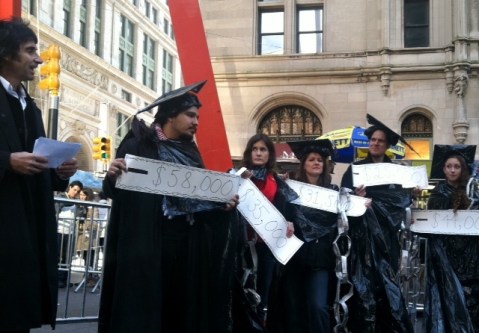










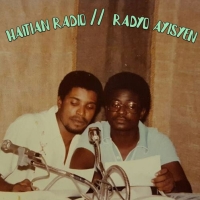
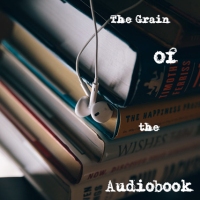
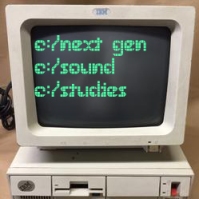




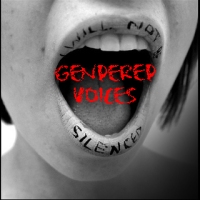


Recent Comments